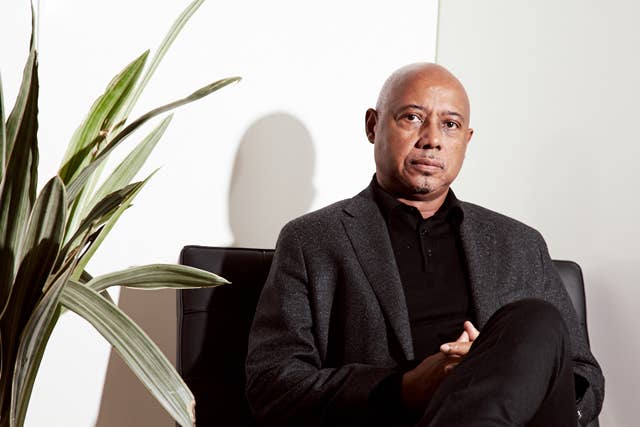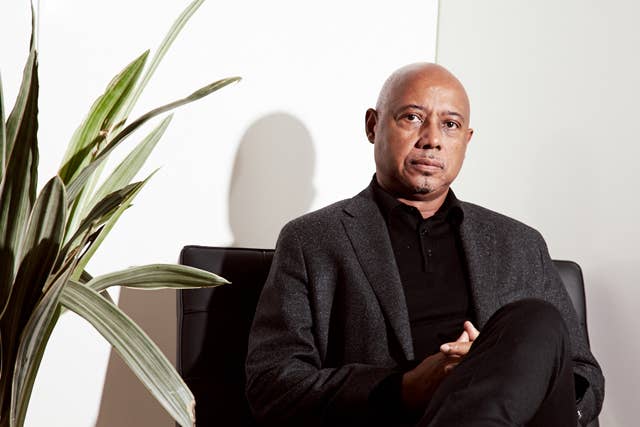
I saw two of the best films I've ever seen in my life in one week this October: the captivating drama Moonlight, and Raoul Peck's explosive new documentary, I Am Not Your Negro. I'd been hearing about Moonlight for some time, so its impact was expected, but Peck's documentary hit me out of nowhere. A documentary that aimed to dive into the last manuscript James Baldwin was working on, where he examined the deaths of Dr. Martin Luther King, Jr., Medgar Evars, and Malcolm X? In a year where Ava DuVernay shined a spotlight on the systemic racism that permeates our prison system in 13th and Ezra Edelman went into microscopic detail on how the issues of race in America created O.J. Simpson? I was intrigued, especially considering the political climate we've been facing.
Fast forward to today, where our President-Elect is a cheeto-hued living meme, [adult swim] aired a full season of a series created by a comedy troupe who are beloved by the "alt-right," and we're still looking for a new Martin (or Malcolm). If only acclaimed novelist and social critic James Baldwin was still alive. For four decades, his plays, essays, and novels spoke on the ills of society and how they related to race relations (as well as gay rights and other atrocities). He was ever present on televised talk shows, touring college campuses, and in the streets as a political activist. At the time of his death, he was working on Remember This House, which was to be a memoir reflecting on the lives of Medgar Evars, Macolm X, and Martin Luther King, Jr. This manuscript is the crux of I Am Not Your Negro, where Raoul Peck found his way to give those words life (with the help of Samuel L. Jackson as the voice of Baldwin) to reveal deeper truths with the way America's views of race has grown since the original Birth of a Nation through today's Black Lives Matter movement.
In conversation, Peck talked about the decade-long process in creating I Am Not Your Negro (which is in the midst of a one-week Oscar-qualifying run before it hits theaters on February 3, 2017), why he chose to have Samuel L. Jackson be the voice of James Baldwin, and why millennials need to learn about yesterday to deal with today.
Can you talk about how the process for I Am Not Your Negro started—from getting Baldwin's manuscript to turning that into what would become the movie?
It started 10 years ago. I knew that Baldwin had to come back because of the role he played in my own life. I read his work when I was around 16. He was one of the few people that really made a difference in my thinking. When I was ready to make this film, I didn't know what [the] film [would be], but I knew it had to be major. It would have to be fundamental, a vehicle, an instrument that we can use today in this world of confusion and pseudo-information. The abuse, when you have a president-elect capable of saying the biggest lies and nobody will confront him to that. The only way I know how to fight is to bring you back to fundamentals, and Baldwin is fundamental.
The film does a great job interspersing footage from the early 1900s up to now, from the Civil Rights era to the unrest in Ferguson. Since you started actually making the film, Trayvon Martin was murdered and the Black Lives Matter movement was born. Did any of the things happening in society shift what you were doing?
It's always a back and forth between what is relevant and not relevant to the moment. That's something we lost, because we are bombarded with information, pseudo-information every day, so it's very hard for young people, and even older people like me, to stay focused. My task was to focus on the fundamentals and not let myself be distracted by any actuality. I would of course say, "OK, it's time to address Ferguson." So I sent a team to film at Ferguson, because somehow it was so emblematic, it was so exactly what Baldwin was talking about, just 40 years later. When he said, "History is the present," for me, that's the key. It's not about the past, it's about knowing your history so that you can fight in the present. Otherwise, you don't know who the real enemy is, what the real issue is, because it had been covered by many layers of bad information, of lies, and manipulation. Baldwin tells us: you need to know your own history. Where do you come from? What did they tell you? What did they hide from you? And if you don't know, you'll be lost.
One of the bigger talking points surrounding the movie is your use of Samuel L. Jackson as the narrator and voice of Baldwin. When in the process did you make that choice?
The voice, I knew that was the only way to tell that story. The question toward the end was, how do I get someone with a tremendous capacity for acting and also some street credibility as a person? No matter what people say about Samuel L. Jackson—you might not like every film he made—he made sense to me. Every single person who worked on the film, it was never just to bring a name or to bring somebody. When I use Kendrick Lamar [Ed Note: The end credits are set to Kendrick's "The Blacker The Berry"], it's because I like what he says, not only as a musician, but as a human being. That's what makes it forever.
One of the keys to I Am Not Your Negro, for me, is that it's the perfect film to give people an idea of how systemic these issues within America truly are, that it's deeper than what's happened in the last five or 10 years, especially when you get into the different ways people are portrayed on reality TV. We're at the point now where that's the foundation of America.
It's the creation of an image. We forget that everything has a meaning, everything has an impact on you. It's what we call soft power today. Nothing is innocent. What Baldwin helped us do is look through those images and see how they were created, why they were created and what they mean, and he shows us that it’s not innocent. They have very specific meaning and very specific goals and today we live in a world of images; it's even worse.
On election night, there were people talking about putting artists like Kendrick Lamar or J Cole on a pedestal, because we haven't had another Martin or Malcolm yet. I think at one point people thought Obama might have been that person, but Baldwin might be closer. He was brash, but he could back up what he was saying and I think, to your point, a voice like his, going into this Trump presidency, is more necessary now than ever before. Do you hope that the millennials who didn't grow with any knowledge of him come out to see the film?
Not only do I hope, I think it's key. We are lost. We have a youth that is totally lost in terms of how to find a right track or even how to learn to make allies, how to organize. Those are basic things that somehow went away. I remember a time when you were protesting on the street together with your professors, with your union, with your school organizations. Everybody was in the streets. Now, everybody is kept alone in his box, in this fragile condition, afraid of losing tenure.
It's hard for young people, even though we have a few voices, like Kendrick Lamar and Ta-Nehisi Coates coming up, but we need to find the larger perspective. We need to learn how to organize, not just to let our anger explode. We need to have organization for the long run, not for one issue, not for one murder, but for everything coming to us in the next 20, 30 years. Everything is linked, and we forgot that.

